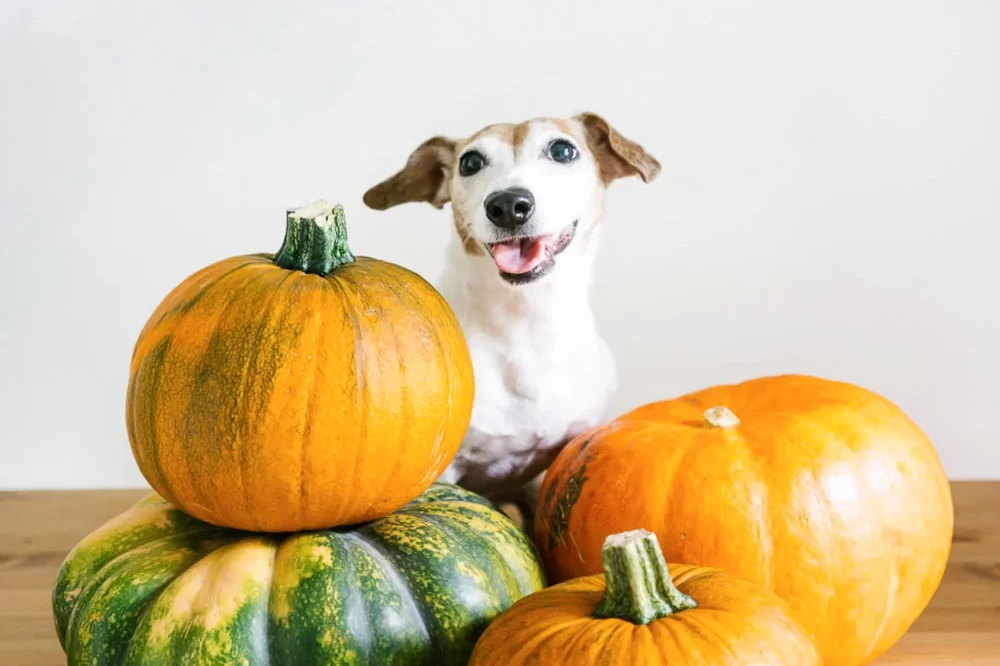Can Dogs Eat Pumpkin Puree? Understanding the Benefits of Pumpkin for Dogs
When it comes to feeding your dog healthy treats, pumpkin puree is often considered a safe and nutritious option. But as with any new food, pet owners may wonder whether it's truly safe and beneficial for their furry friends. In this article, we'll explore whether dogs can eat pumpkin puree, the health benefits it offers, and how you can safely introduce it into your dog's diet. Along the way, we’ll discuss common concerns, share a few tips, and dive into some real-life examples that highlight the importance of including pumpkin in a dog's meals.
What Is Pumpkin Puree and Why Is It Good for Dogs?
Pumpkin puree is simply cooked and mashed pumpkin, often canned or prepared fresh. It is known for being rich in fiber, vitamins, and essential nutrients that support digestive health and overall well-being. For dogs, pumpkin puree can be a beneficial addition to their diet when served in moderation. Rich in vitamins like A, C, and E, as well as potassium and iron, pumpkin puree provides important nutrients that help promote a healthy immune system and balanced nutrition. But what makes pumpkin puree particularly valuable for dogs is its high fiber content, which can aid in digestion and help manage certain gastrointestinal issues.
Health Benefits of Pumpkin Puree for Dogs
Pumpkin puree offers a wide array of health benefits that can make it an excellent addition to your dog’s diet. Let's break down some of the main advantages of feeding your dog pumpkin puree:
1. Supports Digestive Health
One of the most commonly cited benefits of pumpkin puree for dogs is its positive effect on digestive health. The high fiber content in pumpkin helps to regulate bowel movements, making it an ideal food for dogs experiencing constipation or diarrhea. The fiber works by absorbing excess water in the intestines and helping the stool become firmer, or by softening hard stools in the case of constipation. This makes pumpkin a great natural remedy for mild gastrointestinal issues in dogs.
2. Improves Weight Management
Maintaining a healthy weight is crucial for your dog's long-term health, and pumpkin puree can be a helpful tool in weight management. Because of its fiber content, pumpkin puree can help dogs feel fuller for longer, reducing the likelihood of overeating. If your dog is on a weight management plan, adding a small amount of pumpkin puree to their meals can provide a satisfying and low-calorie food option that doesn’t compromise their nutrition.
3. Rich in Nutrients for a Strong Immune System
Pumpkin puree is packed with nutrients that support your dog’s immune system. It contains high levels of vitamins A and C, both of which play vital roles in immune function. Vitamin A supports vision and skin health, while vitamin C is an antioxidant that helps fight off free radicals and supports overall immune health. The potassium and iron found in pumpkin also help maintain healthy muscles and proper body function.
4. Helps with Urinary Health
For some dogs, pumpkin puree can aid in maintaining urinary health. The fiber in pumpkin helps with hydration and flushing out toxins from the body, which can contribute to healthier kidneys and urinary function. It’s also a gentle way to keep your dog’s urinary tract system functioning smoothly, especially if they’re prone to urinary tract infections (UTIs) or bladder issues.
How to Safely Feed Pumpkin Puree to Your Dog
While pumpkin puree is beneficial for most dogs, it’s essential to feed it properly to ensure it’s both safe and effective. Here are some tips on how to safely introduce pumpkin puree into your dog's diet:
1. Use Plain, Unsweetened Pumpkin Puree
When purchasing pumpkin puree for your dog, make sure to choose plain, unsweetened pumpkin puree without any added sugars, spices, or artificial ingredients. Many commercial pumpkin purees contain added sugars or flavorings that are harmful to dogs. Always read the label to ensure that the pumpkin puree is 100% pure pumpkin and free of any additives.
2. Start with Small Amounts
If this is your dog's first time eating pumpkin puree, start with a small amount to see how they react. Some dogs may have sensitive stomachs, and introducing any new food too quickly can cause gastrointestinal upset. Begin with a teaspoon of pumpkin puree and gradually increase the amount over a few days if no adverse reactions occur.
3. Add Pumpkin Puree to Regular Meals
The easiest way to incorporate pumpkin puree into your dog’s diet is by mixing it into their regular food. You can blend a small amount into their kibble or wet food. This can also be a great way to mask the taste of medications or supplements, as many dogs enjoy the mild flavor of pumpkin.
4. Monitor for Allergies or Sensitivities
While pumpkin is generally safe for most dogs, it's still important to watch for any signs of allergies or sensitivities. If your dog shows any signs of discomfort after eating pumpkin, such as vomiting, diarrhea, or excessive gas, discontinue use and consult with your veterinarian. Some dogs may have a sensitivity to pumpkin, although this is relatively rare.
Real-Life Example: How Pumpkin Helped Daisy's Digestive Troubles
Take Daisy, for instance, a 4-year-old golden retriever who had been struggling with frequent bouts of diarrhea. Her owners tried various foods and medications, but nothing seemed to work. After consulting their veterinarian, they decided to try adding pumpkin puree to her meals. Within a few days, they noticed a significant improvement in her digestion. Daisy’s stools became more regular and firm, and she seemed much more comfortable. The pumpkin puree helped balance her digestive system and reduce the frequency of her digestive issues.
Potential Risks and Things to Keep in Mind
While pumpkin puree offers many health benefits, it's essential to be aware of some potential risks and limitations:
1. Overfeeding Pumpkin
While pumpkin is healthy, feeding too much can lead to digestive upset, including diarrhea. It’s important to feed pumpkin puree in moderation. Too much fiber can overwhelm your dog’s digestive system, especially if they’re not used to it. Stick to small portions and adjust based on your dog's size and dietary needs.
2. Watch for Sugar and Additives
As mentioned earlier, ensure that you’re using plain pumpkin puree without any added sugars, spices, or preservatives. Some canned pumpkin products contain ingredients like cinnamon or nutmeg, which are toxic to dogs. Always check the label before offering pumpkin puree to your dog.
3. Not a Complete Meal Replacement
While pumpkin puree offers nutritional benefits, it should not be used as a complete meal replacement. It’s a great supplement to your dog’s diet but should be served alongside their regular balanced meals. Your dog still needs the appropriate amount of protein, fats, and other essential nutrients to stay healthy.












